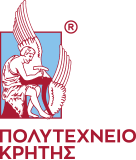Την Τρίτη 13 Δεκεμβρίου 2016 και ώρα 11:00, θα πραγματοποιηθεί ομιλία του Prof. Metin Akay (University of Houston), με τίτλο Advanced Technologies for Human Brain Initiatives, στο μεγάλο αμφιθέατρο του Κτηρίου Επιστημών (141.Π.98), στην Πολυτεχνειούπολη. Η ομιλία διοργανώνεται από το Ελληνικό Τμήμα της Κοινότητας Μηχανικών στην Ιατρική και τη Βιολογία του Ινστιτούτου Ηλεκτρολόγων και Ηλεκτρονικών Μηχανικών (IEEE EMB Greece Chapter) και το φοιτητικό παράρτημα IEEE του Πολυτεχνείου Κρήτης (IEEE TUC Student Branch).
Περίληψη ομιλίας:
Neural Engineering is a new discipline which unites engineering, computer science, physics, chemistry, and mathematics with cellular, molecular, cognitive and behavioral neurosciences, to understand the organizational principles and underlying mechanisms of the biology of neural systems, and to study the behavior dynamics and complexities of neural systems in nature. Therefore, it deals with many aspects of basic and clinical problems associated with neural dysfunction including the representation of sensory and motor information, the electrical stimulation of the neuromuscular system to control the muscle activation and movement, the analysis and visualization of complex neural systems at multi-scale from the single-cell and to the system levels to understand the underlying mechanisms, the development of novel electronic and photonic devices and techniques for experimental probing, the neural simulation studies, and the design and development of human-machine interface systems and artificial vision sensors and neural prosthesis to restore and enhance the impaired sensory and motor systems and functions from gene to system.
Furthermore, the neuroscience has become more quantitative and information-driven science since emerging implantable and wearable sensors from macro to nano and computational tools facilitate collection and analysis of vast amounts of neural data. Complexity analysis of neural systems provides physiological knowledge for the organization, management and mining of neural data by using advanced computational tools since the neurological data are inherently complex and non-uniform and collected at multiple temporal and spatial scales. The investigations of complex neural systems and processes require an extensive collaboration between biologists, mathematicians, physicists, computer scientists and engineering to improve our understanding of complex neurological process from system to gene.
To highlight this emerging discipline, we devote this talk to the recent advances in neural engineering research and education.
Σύντομο βιογραφικό ομιλητή:
Metin Akay is currently the founding chair of the new Biomedical Engineering Department and the John S. Dunn professor of biomedical engineering at the University of Houston. He received his B.S. and M.S. in Electrical Engineering from the Bogazici University, Istanbul, Turkey in 1981 and 1984, respectively and a Ph.D. degree from Rutgers University in 1990.
He is the founding editor-in-chief of the Biomedical Engineering Book Series published by the Wiley and IEEE Press and the Wiley Encyclopedia of Biomedical Engineering. He is also the editor of the Neural Engineering Handbook published by Wiley/IEEE Press and the first steering committee chair of the IEEE Trans on Computational Biology and Bioinformatics. He established the Annual International Summer School on Biocomplexity, Biodesign and Bioinnovation sponsored by the NSF and the IEEE EMBS and was the founding chair of the IEEE EMBS Special Topic Conference on Neural Engineering.
He is the chair of the IEEE EMBS Neuroengineering Technical Committee. He was the program chair of the International IEEE EMBS 2001 and the co-chair of the Annual International IEEE EMBS 2006 and the program co-chair of the Annual International IEEE EMBS 2011 conference held in Boston.
Dr. Akay is a recipient of the IEEE EMBS Early Career and Service awards as well an IEEE Third Millenium Medal and is a fellow of IEEE, the Institute of Physics (IOP), the American Institute of Medical Biological Engineering (AIMBE) and the American Association for the Advancement of Science (AAAS). His Neural Engineering and Informatics Lab is interested in developing an intelligent wearable system for monitoring motor functions in Post-Stroke Hemiplegic Patients and detecting coronary artery disease. In addition, his lab is Engineering High-Throughput 3D in vitro Platform for Targeting Glioblastoma Multiforme Vasculature and molecular profiling.















